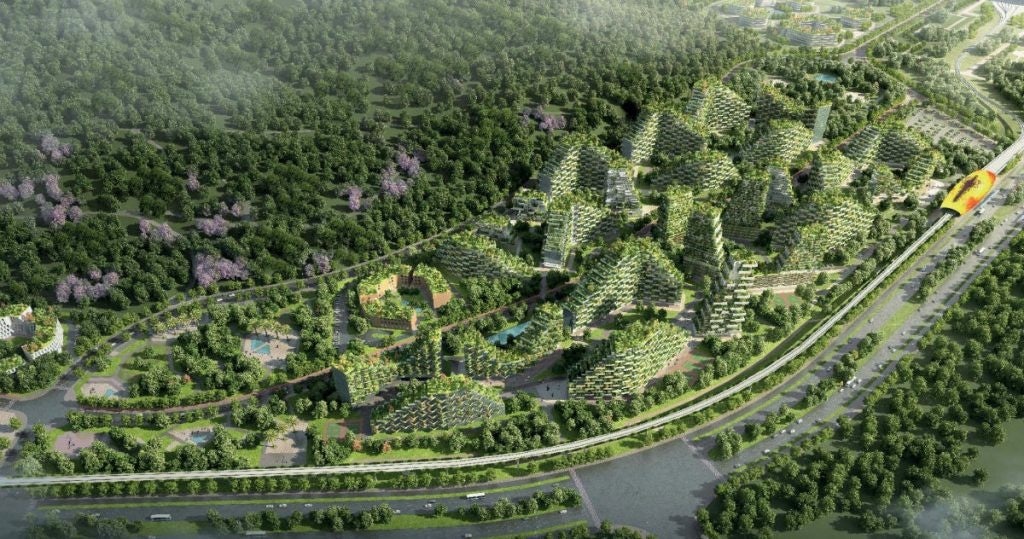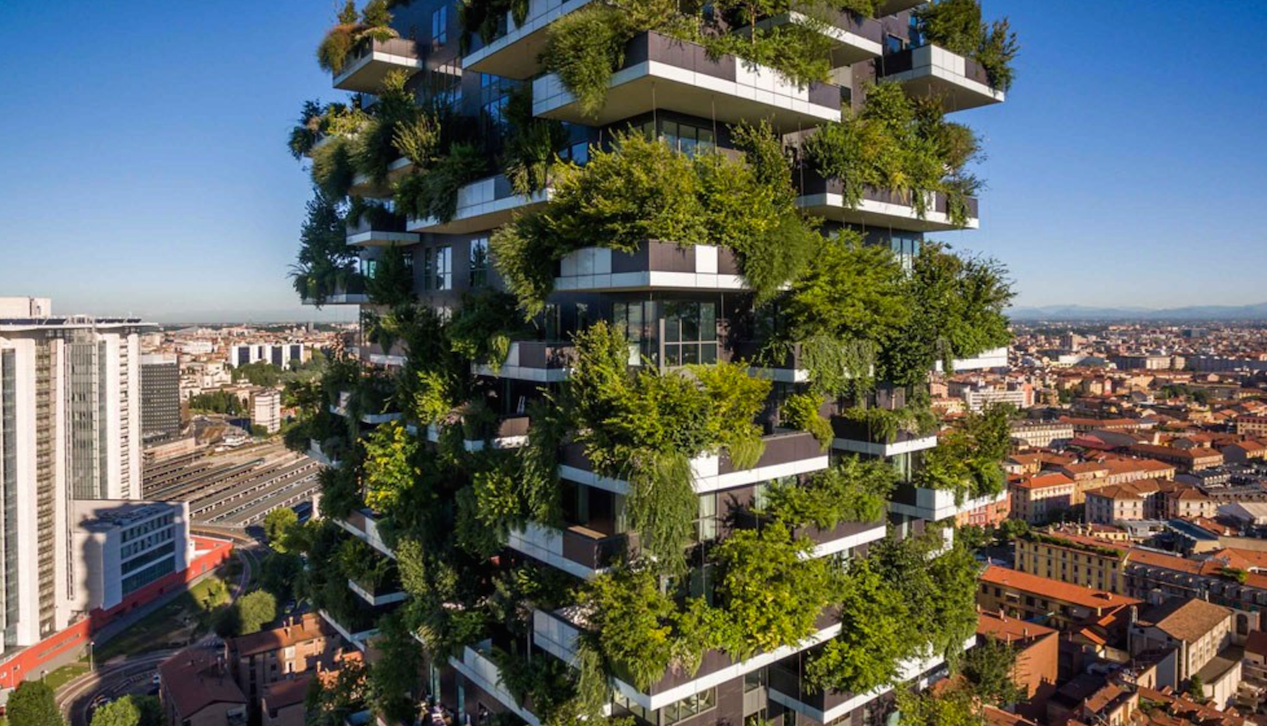Beijing’s smog sufferers may soon have another oasis thanks to eco-conscious urban planning by Italian architecture firm Stefano Boeri Architetti. On Monday, the designers broke ground on its aptly named ‘forest city’ development in the southern Chinese city of Liuzhou, which will consist of buildings covered in hundreds of thousands plants and trees set to reduce the pollution in the area.
The eco-friendly metropolis is designed to absorb 10,000 tons of carbon dioxide and 57 tons of pollutants per year and house about 30,000 residents, which is about .07 percent of Liuzhou’s population. It’s likely the amenities will be comparable to the designer’s similar apartment complex in Milan’s Porta Nuova district, the Bosco Verticale, or Vertical Forest, which commands £1.7 million for a 200-square-meter penthouse.

In China, the Liuzhou development will also feature hotels to host visitors seeking fresh-air as well as an escape from the concrete jungle. Smog-fueled tourism has already seen a boom in the country—late last year, dangerously high levels of pollution in Beijing and surrounding areas prompted wealthy residents to travel to coastal cities in China, beach resorts, ski resorts, and even out of the country entirely. Ctrip estimated at the time that 150,000 travelers would book trips abroad in December just to get away from the capital’s poor air quality.
Nanjing in China's eastern Jiangsu province may soon also be added to the travel destination list, should there be a similar pollution-fueled travel boom. Stefano Boeri confirmed in April it would be building two skyscrapers in Jiangsu's capital that will have around 3,600 trees and plants, and will house a 247-room Hyatt hotel and a museum.
Stefano Boeri’s forest developments are also slated for other Chinese cities. Mountainous Guizhou in southwest China is expected to get a hotel, Shanghai’s Pudong Airport may soon see a “sky jungle” and Chongqing may get a suburban complex featuring “seeding hortiecture.”

